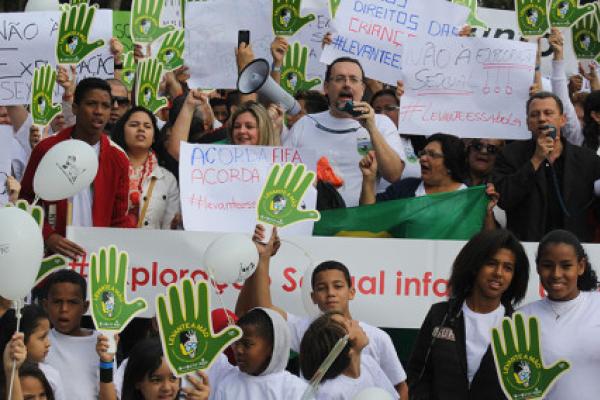May 30, 2014
As Brazil counts down to the opening of the World Cup on June 12, churches in cities hosting the international soccer tournament are not content to sit on the sidelines and cheer.
They’ve launched a nationwide campaign to raise awareness of the hundreds of vulnerable children at risk of sexual exploitation during the month-long competition.
With an estimated 600,000 soccer fans expected to arrive in Brazil within a matter of days, the South American nation is under pressure to combat its international reputation as a destination for child sex tourism.
Church leaders fear the heavy flow of tourists during the games could fuel an explosion of sexual trafficking of children and teens at fan fest locations around the World Cup arenas.
Read the Full Article

Already a subscriber? Login
